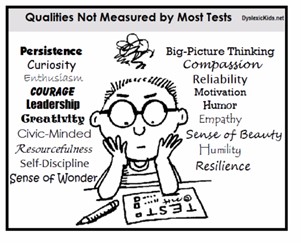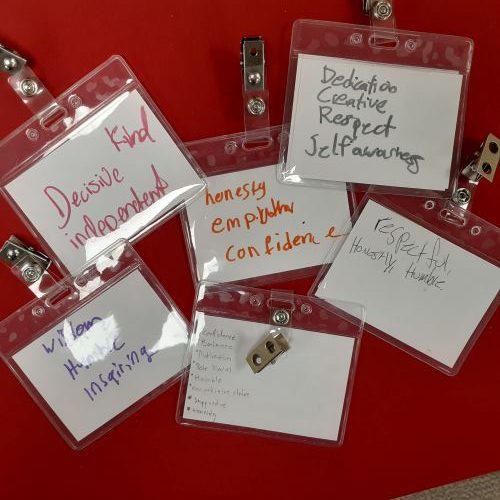In January it is customary to set priorities for the new year AND a key aspect of the Juntos program is creating an educational plan. Juntos (pronounced “Who-n-toes”) means “Together” in Spanish. The Juntos program brings together cohorts of 8th-grade youth to support each other for three to five years as they enter high school and prepare together for higher education. The multifaceted partnerships are what make the Juntos program a sustainable success in many communities across the U.S. To encourage these connections, the Juntos program in Wisconsin began sharing a quarterly newsletter at the end of 2021. We are due to release a newsletter in January 2023 and the section I was tasked to write was goal setting.
In fact in a recent Rock County 4-H Weekly Update, we included the same reflection questions:
- What is the educational goal you want to achieve?
- What are the actions needed to reach the goal?
- Who or what can help you?
- What is the deadline to achieve the action?

However, the expanded 4-H experiences set to grow in 2023 are as much about connection goals as they are content. Juntos centers family. Nia, a program named after a Kwanzaa principle, centers community. When I stop to consider this strength of our youth-adult partnerships, I reflect on a slide shared during a session facilitated by Dr. GD Gilmore, “Qualities Not Measured by Most Tests”.
My work with youth in 2021 was characterized often by youth demonstrating that they already knew what content mattered most and why. In 2023, my youth-adult partnership goal is to center the conversation around what type of space, experience or framework youth could create. What can youth and adults build together that would increase the likelihood that our communities would apply or build capacity in the kinds of descriptors listed in the image?
Youth voice and multiple types of leadership are essential to our work and can be done in SO MANY WAYS depending on each person’s interests, talents and skills they want to learn more about. The last few months permitted spaces that COVID had taken away and yet lessons learned during that time return as important as ever before. The following opportunities are one such example.
- Communications and Media- Do you enjoy promoting or motivating people on social media, by writing articles or trying to decide what matters most to different groups of people. . .
- Education and Outreach- Are you good at gathering information on a topic for people and connecting with groups to share that knowledge. . .
- Research and Evaluation- Do you like to problem solve, create a question and then explore to figure out an answer that makes sense and can help someone. . .
- Governance and Policy Making- Are you excited about finding ways to apply knowledge in the community as a whole by forming new ways of living together through policies or new norms. . .
- Service and Philanthropy- Is your passion finding ways to find who needs help and giving them what they need. . .
- Activism and Advocacy- Would your friends describe you as someone who learns about important issues and not only uses their voice to make a difference but motivates others to do the same. . .
I am a language learner in my personal life. By building this vocabulary with youth and adults, I am hopeful about conversations in the new year that center our self descriptions as goals and a wider range of words to describe youth participation.

Resources
Resources for getting started with your conversations in 2023!
Developmental Assets framework Search Institute has identified 40 positive supports and strengths that young people need to succeed. Half of the assets focus on the relationships and opportunities they need in their families, schools, and communities (external assets). The remaining assets focus on the social-emotional strengths, values, and commitments that are nurtured within young people (internal assets).
Youth Advocates for Community Health The Youth Advocates for Community Health (YACH) initiative creates youth-adult partnerships that allows youth to lead and generate energy among their peers (and adults) to improve the health in their community in ways that matter to them. Extension provides a YACH guidebook filled with resources for planning a youth-led community health project. The projects focus on making the healthy choice the easy choice in a community.
Youth Engaged in Learning About Leadership Curriculum The YELL Handbook, with over 300 pages of structured agendas and planning resources, is available for free download. This resource is currently used to support youth leadership development and action in a variety of contexts throughout the United States, as well as in international settings.
Learn Together. Lead Together. Each year, youth and adult volunteers and leaders from every chartered 4-H club and group are encouraged to participate in Annual Leader Training. The training topic changes each year to focus on subjects of importance to the whole Wisconsin 4-H community. In 2021, the area of focus was Learning Together, Leading Together: Youth-Adult Partnerships. The handouts and topics are still available for use.
4-H Thriving Model The 4-H Thriving Model is based on research conducted at Oregon State University’s College of Public Health and Human Services. This model predicts that youth who participate in 4-H programs that provide a high-quality developmental context will thrive, and thriving youth achieve key developmental outcomes.
Explore further resources in the Community Youth Development Tab for youth and adults.
P.S. If an educational plan is your New Year’s resolution, here are a variety of resources to get you started.




